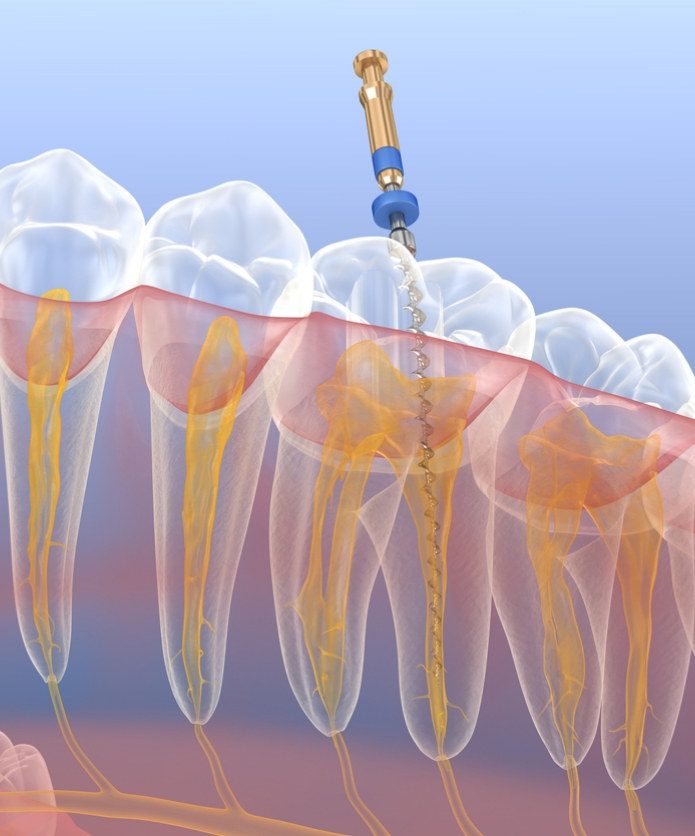Root Canal Treatment
Root canal therapy, also known as endodontic treatment, is a common dental procedure to treat inflammation or infection of the dental pulp. Although it is often feared due to many preconceived ideas, this treatment is essential for preserving a badly affected tooth. Rest assured: with painkillers and modern techniques, the bad reputation of root canal treatment is a thing of the past. In fact, root canal therapy eliminates pain rather than causing it.
When is a root canal necessary?
Root canal treatment becomes necessary when the dental pulp becomes damaged, infected or necrotic. This usually occurs when a cavity has been left untreated and has deepened, or following trauma that has damaged the tooth. This procedure helps prevent more serious oral complications: abscesses, spread of infection, development of periodontitis, etc.
Prompt intervention can save the natural tooth, preserving its masticatory function and the aesthetics of the smile. On the other hand, if infection is not treated in time, it can lead to major problems, sometimes necessitating complete extraction of the affected tooth.
Root canal treatment process
It can be stressful to undergo such a procedure, especially when you've always heard about it in less than glowing terms. Here's a brief summary of what you need to know about root canal therapy.
Treatment steps
To ensure pain-free treatment, the dentist first administers a local anaesthetic. Then, a dam is placed around the tooth to protect it from bacteria in the saliva.
Next, a small opening is made in the tooth to access the root canal and damaged pulp. Using precision instruments, the dentist removes the pulp, cleans and widens the canal.
Once this step is complete, the canal is filled and sealed to prevent future infection. Finally, the dentist closes the tooth with a temporary or permanent filling.
What you need to know after the procedure
Following root canal treatment, it is often necessary to cover the treated tooth with a dental crown. This treatment provides long-lasting reinforcement, restores full chewing functionality and blends seamlessly into your smile for a harmonious aesthetic result.
Here are a few important points to keep in mind after the procedure:
- Temporary sensitivity: The tooth may remain sensitive for 2-3 weeks. This is completely normal, and should diminish over time.
- Pain and swelling: If you experience severe pain or swelling, don't hesitate to book a follow-up appointment as soon as possible.
- Post-operative visits: Even if the tooth has been devitalized, it may still be subject to gum problems or decay. Depending on the state of your oral situation, it's quite possible that one or two additional visits to the dentist will be required to fully treat the infection (original or residual).
Root canal treatment has an excellent success rate. Treated teeth can last a lifetime with proper maintenance. Don't hesitate to contact us at Clinique Dentaire Wayne Dionne in Edmundston if you have any concerns or worries about one (or more) of your teeth. Our team is ready to welcome you and help you return to a more peaceful life where dental pain is a thing of the past.

Would you like more information about our clinic or any of our services?
Contact us today
A member of our passionate team looks forward to meeting you and answering all your questions!
